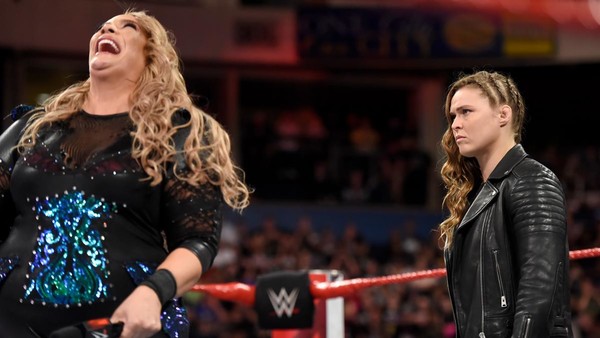How WWE Became So Terrible It Altered The Way We Watch It
The Ultimate Shill Ride.

Jerry Lawler, on a recent edition of his Dinner With The King podcast, bemoaned the motivation of the modern wrestling fan. Aghast at what he perceived as “really sad” pedantry, he pondered why they do not simply receive it as it is meant to be received: as a work of fiction, its magic no longer under jaded scrutiny.
He wasn’t the first. Goldust and Road Dogg have lashed out in recent years with similar protests, and were joined this year by Frankie Kazarian, who tweeted the following on May 8:
“I liked it when people were fans. When nobody knew who the booker was. Or cared. Nobody asked “who wrote this segment?” Who was on the creative team was not even remotely a thought. Yes, everything evolves, which is a positive. Along the way however, we’ve forgotten to just be fans.”
How did we reach this point?
Possibly because WWE storylines are impossible to receive as works of fiction in 2018. We haven’t forgotten how to be fans of the main roster product. We’ve been given no reason to be fans.
Consider the narratives and characters we are presented with currently, very much in keeping with years of illogical dross at drastic odds with toxic arena sentiment. In a contrived attempt to engineer sympathy on behalf of Roman Reigns, he is now positioned as a sort of spiritual successor to Daniel Bryan when, in effect, he is his antithesis. Entitled; arrogant; handed several opportunities - even when complaining to the contrary - Reigns is the successor to John Cena in one dubious respect. You can see right through him.
Nia Jax, mere weeks after standing up to bullying, became a bully herself, neatly exposing in micro WWE’s hideously hypocritical campaign. The only way to receive this development is with utter bemusement, irrespective of the quality of her performance which, scripted by the usual hack team of failed mainstream writers and orated by a dire performer, was very poor - and patently phoney.
The characters don’t believe their own scripted bullsh*t, and thus don’t inspire belief. Wins and losses do not matter. A cursory scan through the WWE.com roster page reveals more losers than winners. Faced with such treacly, over-produced and maddeningly inconsistent content, we play a different role in order to engage with the product, or at least a more idealised, hypothetical version of it. We don’t watch WWE as an emotional investment; instead, we watch in a fruitless attempt to determine just what the f*ck they are thinking.
We no longer play the role of customer, but rather detective. And, much like in detective fiction, a body always washes up on the shore.
CONT'D...